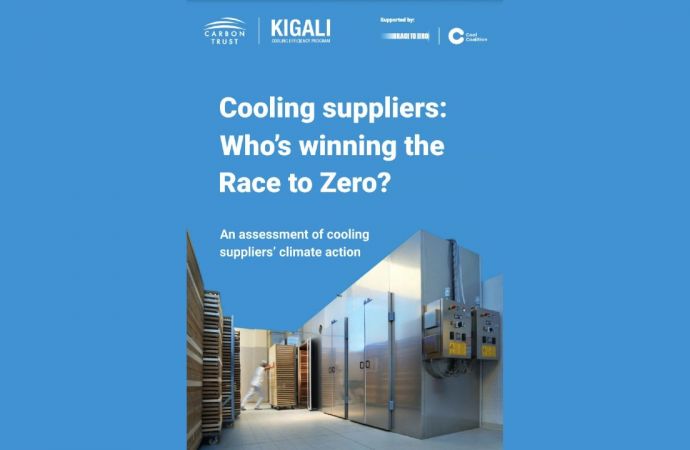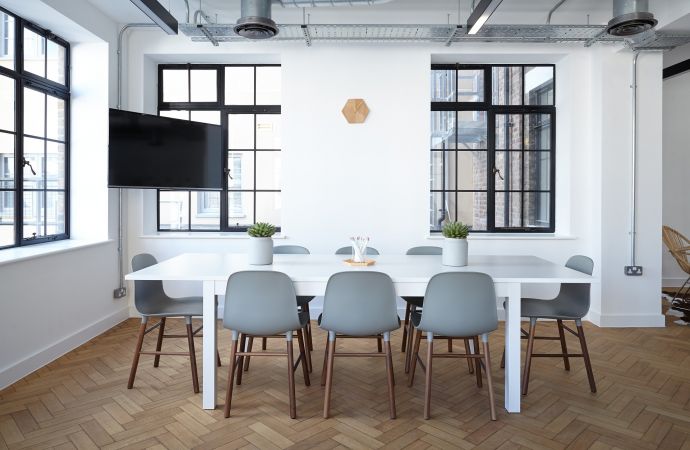In 2021 a number of Clean Cooling projects will be implemented in developing countries, says Professor Toby Peters, who first defined the concept.

Professor Toby Peters speaking at the 2019 ATMOsphere Europe Conference.
If Toby Peters has his way, Clean Cooling will change the way society approaches the deployment of air conditioning and refrigeration systems.
Peters, Professor in Cold Economy at the University of Birmingham, U.K., and Co-Director of the Birmingham-based Centre for Sustainable Cooling, first defined Clean Cooling several years ago, and has since written and spoken extensively about it.
Clean Cooling encompasses many dimensions but, in its essence, it means “resilient cooling for all who need it, without environmental damage and climate impact and with the optimal use of natural and thermal resources throughout the lifespan of the cooling system," Peters said.
While this includes using the most efficient cooling equipment with the lowest GWP refrigerants, it also calls for an assessment of the amount of cooling needed, and how much of it can be met non-mechanical means like white roofs, shading and natural ventilation.
The concept of Clean Cooling continues to be refined by Peters and colleagues in concert with shecco, publisher of Accelerate, and in discussion with external experts. Its current definition can be found here. Peters expects the definition to evolve over time as cooling solutions and strategies improve.
Peters and shecco are also leading a collaborative project to develop a standard Clean Cooling process – in effect, a series of questions by which cooling projects can be audited. This process could be employed by a variety of stakeholders, including end users, planners, banks and governments. Peters and shecco will welcome industry feedback on the definition and standards that are developed.
In the following interview, Peters looks at the prospects for Clean Cooling in 2021.
//Accelerate: In general, how much progress will be made by stakeholders in adopting Clean Cooling practices or pursuing Clean Cooling goals in 2021?
Toby Peters: I think 2021 will be a pivotal year as we see cooling and cold chain as key priority areas for climate and social goals, and a range of initiatives really start to gather momentum. Key, though, to the goal of delivering Clean Cooling – and a pathway to net-zero cooling – are policies and strategies stretching ambition to the real level of system intervention needed to deliver economically, socially and environmentally sustainable cooling.
//Accelerate: What are some examples of regions or stakeholders that will adopt these practices or pursue these goals in a significant way next year?
TP: While the focus will, of course, be on India and China as the big cooling markets, I think we are going to see some really exciting, foundational initiatives in the newer but fast-growing markets. This will be particularly true for Sub-Saharan Africa, where we can leap from no cooling to Clean Cooling through initiatives like the African Centre of Excellence for Sustainable Cooling and Cold-Chain.
I also think we shall see regions like the GCC (Gulf Cooperation Council: Saudi Arabia, Kuwait, the United Arab Emirates, Qatar, Bahrain, and Oman) really start to focus on the opportunities of Clean Cooling as they look to economic resilience and opportunities beyond fossil fuels. Within this, COVID-19 has shown us the need for resilient global cold chains for food and vaccines, which forward-looking countries will want to invest in and lead.
//Accelerate: How will Clean Cooling practices help in the distribution of a COVID-19 vaccine next year?
TP: Clean Cooling per se is not required in the distribution of a COVID-19 vaccine – we can do that by deploying more high-emissions technology. Equally, we can solve the challenge with some interventions which are marginally greener. Or we can rise to the challenges and really think about how do we solve the need for the cold chain to meet COVID-19 distribution but in ways which actually leave a lasting legacy for society, the environment and the investment.
//Accelerate: How much will the announcement of a Global Cooling Prize winner in 2021 advance Clean Cooling?
TP: This is a game-changer which shows governments and the public what can be achieved now, which are not simple incremental improvements in efficiency. The issue then is whether we use this to set real targets for efficiency improvements which will have a game-changing environmental impact on cooling in the next decade, or continue with easy wins which do not move the dial.
//Accelerate: At this point, 111 countries (plus the EU) out of 197 have ratified the Kigali Amendment. How much will Kigali ratifications move the needle on Clean Cooling in 2021?
TP: We need to go further faster.
//Accelerate: What will the biggest obstacle to Clean Cooling be in 2021?
TP: Continuing to set the bar too low and allowing unsustainable equipment to be embedded in the system today which will be operation in the 2030s, not just this decade.
Related stories


